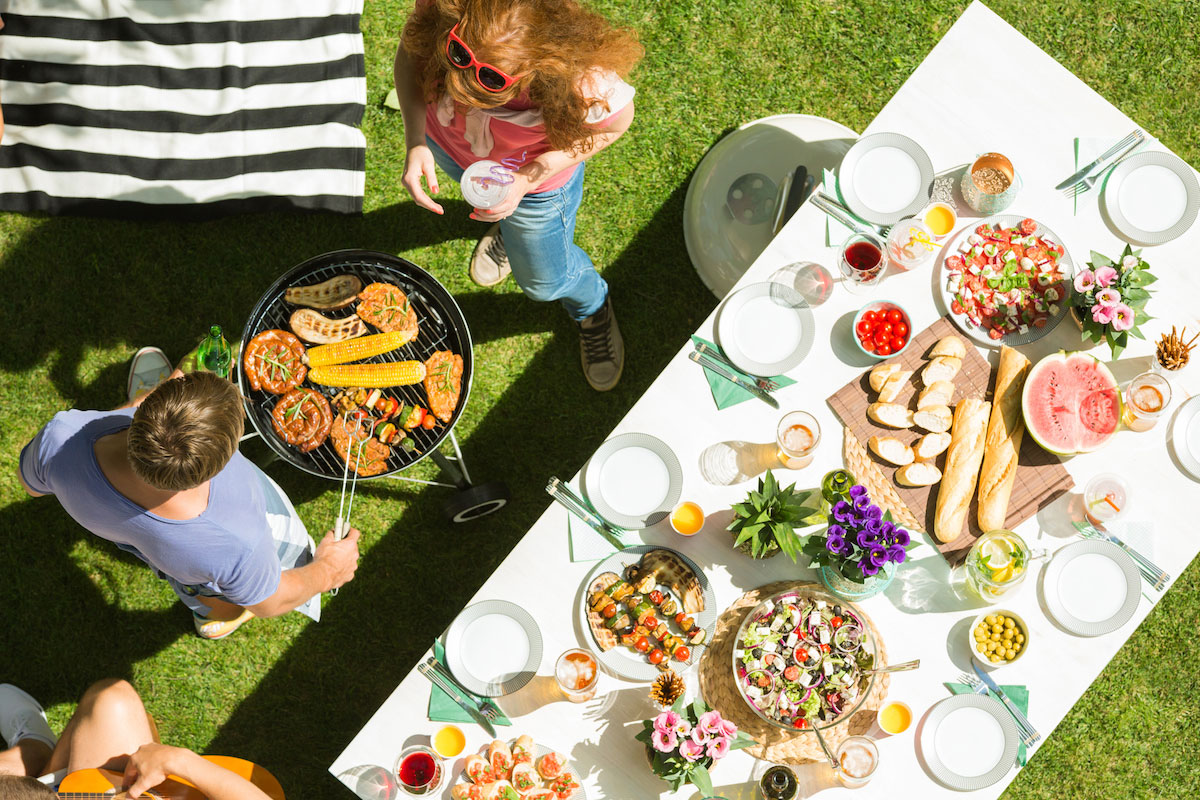It’s all fun and games at the summer cookout until the food poisoning sets in; fortunately, there are easy and safer ways to plan for your family’s outside eating to avoid food-borne illness.
The heat of summer makes it even more important to keep an eye on things that need to stay cold (ideally, colder than 40 degrees) so they don’t get too warm, spoil and pose a hazard to anyone eating them.
To pack a healthy cooler for your outing, you should:
- Make sure the food is cold when you pack it in the cooler. Put things in frozen if appropriate and they will help keep other items cold. Cold food should be stored at 40 degrees or below.
- Pack the coldest foods at the bottom of the cooler.
- Keep raw items separate from cooked items, using secure zip-top bags or containers for raw meat.
- Choose a cooler that’s well insulated with a secure lid. Fill it with ice, ice packs or frozen bottles of water to keep temperatures low.
- Pack the cooler right before you leave the house and do not open it until you’re ready to eat.
- If possible, keep cold drinks in a different cooler because people tend to open and close the cooler more often to grab them.
- Transport the cooler in the air-conditioned car instead of the hot trunk if there’s room.
It also takes some planning to ensure the food you choose for your picnic or cookout is safe.
Consider these guidelines:
- Don’t leave perishable foods unrefrigerated for more than two hours, more than an hour if the temperature outside is 90 degrees or hotter.
- Keep foods covered or in sealed containers to keep the insects out.
- Eat any takeout foods within two hours of purchase, unless you’ve tucked them right into the cooler.
- Leave mayonnaise-based foods – potato, macaroni and tuna salads – behind and instead bring heat-friendly and healthier options like chopped veggie salads or veggie sticks (cucumbers, peppers and asparagus) or oil-based salads. If dipping is a must for your crew, switch ranch dressing for hummus or peanut butter.
- Try cooking meat from its frozen state, which takes about 50 percent longer but helps keep your food bacteria-free.
- Make sure meats reach the safe minimum internal temperature when cooking by using a meat thermometer. Temperatures should be at least 145 for beef, lamb, fish and pork; 160 degrees for ground beef and egg dishes; and 165 for poultry and casseroles.
- Don’t leave food out in the sun. Keep your cooler in a shady spot, serve food quickly and return it to the cooler as soon as possible.
- If you’re marinating meat and want to use some of the marinade as a sauce, reserve a portion separately. Don’t reuse marinade after it’s been in contact with raw meat.
- Consider putting bowls of salad and other perishable items in a tray of ice to help keep them cold. Drain water and restock with ice as needed.
Mary Noon, a registered dietitian and nutritionist at Hartford Hospital, suggested adding some of these healthy options to your barbecue menu this summer:
- Grilled vegetables drizzled with balsamic vinegar.
- Turkey burgers filled with diced vegetables.
- Pork tenderloin marinated with lime, adobo, cilantro and a touch of honey.
- Whole wheat or lentil pasta tossed with Italian dressing and fresh cut vegetables.
- Roasted corn on the grill with paprika.
- Thin sliced sweet potatoes tossed with olive oil and rosemary.
- Marinated bean salad with green beans, edamame and wax beans.
- Homemade grilled pizza topped with fresh basil and cheese.
- Grilled fruits like peaches and pineapple slices with yogurt on the side for dipping.
Want even more information and personalized advice? Make an appointment with a registered dietitian. Call us at Hartford Hospital (860.972.2604) and we can tell you how.
Looking for information on surgical weight loss? Visit WhatWillYouGain.org to find a FREE community education class near you!

